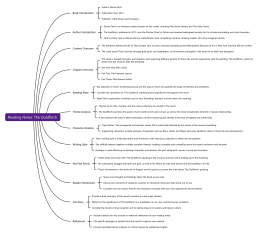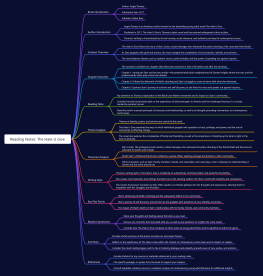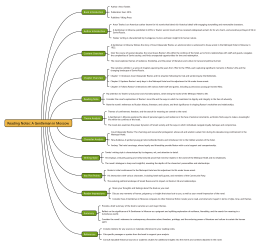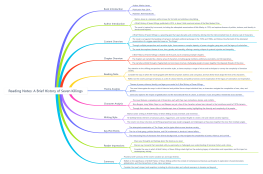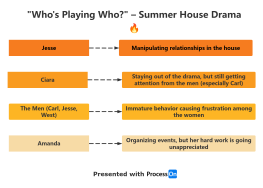
Study Notes for History of Drama
1 Report
This comprehensive study guide delves into the origins and development of drama, beginning with the historical context and the evolution of Greek theater from rituals and festivals. It explores the works and innovations of Greek tragedians Aeschylus, Sophocles, and Euripides, highlighting major plays such as 'The Oresteia,' 'Oedipus Rex,' 'Antigone,' 'Medea,' and 'The Bacchae.' The guide also examines Greek comedy through the lens of Aristophanes, contrasting Old and New Comedy, and discussing his major works like 'The Clouds' and 'Lysistrata.' The architectural design of Greek amphitheaters is detailed, covering aspects such as acoustics, sightlines, and performance spaces for the chorus. The adaptation of Greek drama, including its translation, influence, and Romanization, is explored, along with distinctive elements of Roman theater. Key figures in Roman comedy, Plautus and Terence, are discussed, with summaries of their life, works, and major plays such as 'Menaechmi,' 'Pseudolus,' 'The Brothers,' and 'The Eunuch.' Roman tragedy is represented by Seneca, whose life, works, stoic influences, and major plays like 'Thyestes' and 'Phaedra' are analyzed. The decline of Roman theater is attributed to social, political factors, and shifts in literary trends, while the legacy of ancient drama is acknowledged. Further sections cover the progression of drama through medieval, Renaissance, and modern periods, providing a thorough overview of the history of drama.
Related Recommendations
Other works by the author
Outline/Content
See more
Origins and Development
Historical Context
Origins of Greek Theater
Evolution from Rituals and Festivals
Greek Tragedy: Aeschylus, Sophocles, Euripides
Aeschylus
Life and Works
Innovations in Tragic Form
Major Plays: 'The Oresteia'
Sophocles
Life and Works
Characteristics of Sophoclean Tragedy
Major Plays: 'Oedipus Rex', 'Antigone'
Euripides
Life and Works
Experimental Elements in Euripidean Tragedy
Major Plays: 'Medea', 'The Bacchae'
Greek Comedy: Aristophanes
Life and Works
Old Comedy vs. New Comedy
Satire and Political Commentary
Major Plays: 'The Clouds', 'Lysistrata'
Theater Architecture: Greek Amphitheaters
Design and Construction
Acoustics and Sightlines
Chorus and Performance Spaces
Adaptation of Greek Drama
Translation and Influence
Romanization of Greek Tragedy and Comedy
Distinctive Roman Theatrical Elements
Roman Comedy: Plautus, Terence
Plautus
Life and Works
Characteristics of Plautine Comedy
Major Plays: 'Menaechmi', 'Pseudolus'
Terence
Life and Works
Elegant Style of Terentian Comedy
Major Plays: 'The Brothers', 'The Eunuch'
Roman Tragedy: Seneca
Life and Works
Stoic Influence in Senecan Tragedy
Violence and Spectacle in Senecan Drama
Major Plays: 'Thyestes', 'Phaedra'
Decline of Roman Theater
Social and Political Factors
Shift in Literary Trends
Legacy of Ancient Drama
Medieval Drama
Renaissance Drama
Modern Drama
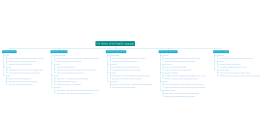
Collect
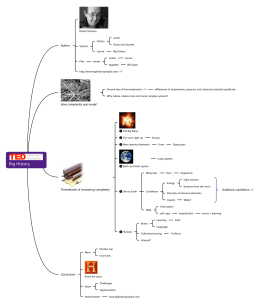
Collect
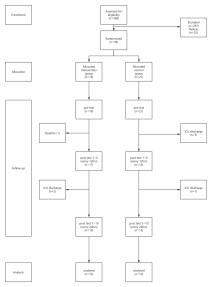
Collect

0 Comments
Next Page
